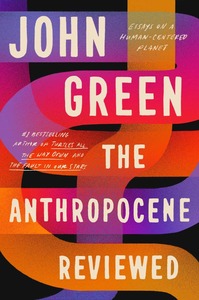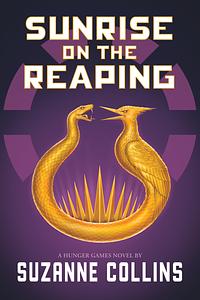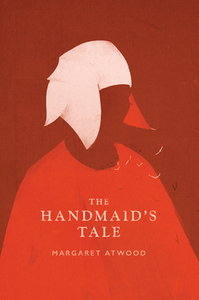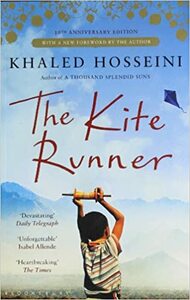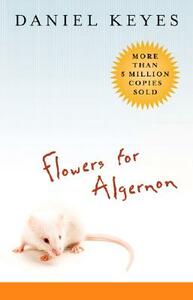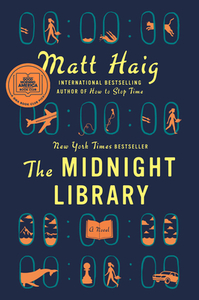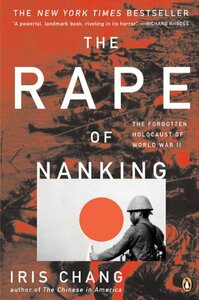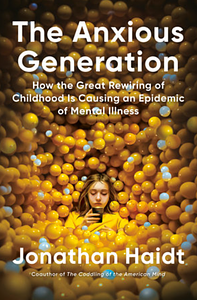You need to sign in or sign up before continuing.
Take a photo of a barcode or cover
_aceebd's Reviews (28)
The book isn't for me. It felt like I'm reading a textbook or a Google article. The premise is promising, but I was on the 3rd chapter, and I found myself snoozing.
This is actually my first time reading a book after watching its adaptation, and maybe that affected my experience a bit.
The first half felt slow. Not bad, just... slow. I struggled to stay invested, especially because I already knew the world and characters from the show. I kept waiting for the intensity I remembered from the series, and it took a while to get there.
But then came Chapter 28. That chapter flipped a switch for me. The writing felt sharper, the stakes higher, the tension realer. Chapter 30? Chef’s kiss. From there until the end, I was fully hooked.
I love dystopian fiction because it often ages well, and this one does too — terrifyingly so. Despite being written in the 80s, the themes are still frighteningly relevant. The hypocrisy, the ritualized violence, the control over women’s bodies, all of it is eerily timeless.
If you’re starting this book and feeling it drag: hang in there. It rewards your patience.
The first half felt slow. Not bad, just... slow. I struggled to stay invested, especially because I already knew the world and characters from the show. I kept waiting for the intensity I remembered from the series, and it took a while to get there.
But then came Chapter 28. That chapter flipped a switch for me. The writing felt sharper, the stakes higher, the tension realer. Chapter 30? Chef’s kiss. From there until the end, I was fully hooked.
I love dystopian fiction because it often ages well, and this one does too — terrifyingly so. Despite being written in the 80s, the themes are still frighteningly relevant. The hypocrisy, the ritualized violence, the control over women’s bodies, all of it is eerily timeless.
If you’re starting this book and feeling it drag: hang in there. It rewards your patience.
The Kite Runner is one of the heaviest, most emotional books I’ve read so far. The way Khaled Hosseini writes his characters — especially Amir — is brilliant. I hated Amir at times, but I understood him. His flaws, insecurities, guilt — all painfully human.
While A Thousand Splendid Suns was more of a page-turner, I actually loved the characters in The Kite Runner more because of their inner conflicts and moral struggles. It’s so hard to fully hate them, because you also get why they do horrible things (even if those actions aren’t justified).
The way the story weaves together, with all the parallels and repeating patterns across generations — absolutely satisfying. The “circle of life” moments and how everything connects had me screaming internally.
Khaled Hosseini, you’ve got me — I’m hoarding all your books now!
While A Thousand Splendid Suns was more of a page-turner, I actually loved the characters in The Kite Runner more because of their inner conflicts and moral struggles. It’s so hard to fully hate them, because you also get why they do horrible things (even if those actions aren’t justified).
The way the story weaves together, with all the parallels and repeating patterns across generations — absolutely satisfying. The “circle of life” moments and how everything connects had me screaming internally.
Khaled Hosseini, you’ve got me — I’m hoarding all your books now!
An interesting and heartbreaking read! I loved seeing the progress and eventual deterioration of Charlie — from being oblivious, to developing opinions, humour, and even shame, and finally slipping back and forgetting what he once understood. The emotional weight hits hard: it’s easier to be unaware than to become painfully aware of what you’ve lost. It’s like being an athlete at their peak, then losing the ability to even walk, knowing what you once could do but helpless to stop the decline. This is such a good read — perfect if you’re in a reading slump, since it’s short but very malaman (full of meaning). Highly recommend!
"And we spend so much time wishing our lives were different, comparing ourselves to other people and to other versions of ourselves, when really most lives contain degrees of good and degrees of bad."
It's the right book at the right time for me. It's definitely a light read compared to my previous book, but still substantial. Highly recommended for anyone in a reflective mood.
It's the right book at the right time for me. It's definitely a light read compared to my previous book, but still substantial. Highly recommended for anyone in a reflective mood.
Iris Chang’s The Rape of Nanking is honestly the most brutal book I’ve ever read—it reminded me of A Serbian Film where you keep thinking “this is the worst,” then it somehow gets worse. Chapter 4 really broke me; it just showed how cruel humans can get, and it made me realize why we even need laws in the first place. What pissed me off the most is how there was barely any justice—people like Hirohito and Asaka never got punished, and some of the soldiers even got to hold office after the war. The US and China didn’t help either—both governments chose to protect their own interests instead of the victims. It’s such a heavy read, but I still think everyone should read it—especially so we never forget.
The Anxious Generation: How The Great Rewiring of Childhood is Causing an Epidemic of Mental Illness
Expectation vs Reality:
I thought The Anxious Generation would be preachy—very “boomer uncle telling you how to live your life”—and yes, it kind of is. But to be fair, it’s backed by research and stats, so it’s not just opinion or fear-mongering.
Mental health talk felt... oversimplified:
Haidt tends to lump ADHD, Tourette’s, and gender dysphoria into the idea of “social contagions,” which felt too reductive and dismissive. Self-diagnosis isn’t always harmful—it can actually be the first step in getting real help. Awareness doesn’t automatically mean people are chasing trends. And the mental health crisis isn’t just caused by phones; we’re surviving, not living, and there are so many global stressors beyond the internet.
But yes, tech made things worse:
Social media has definitely played a big role in declining mental health. Our phones affect how we focus, how we relate to others, and even how we see ourselves.
Chapter 6 = Ick:
This chapter really rubbed me the wrong way. It felt like girls were being blamed for “spreading” depression just because we tend to express our emotions more openly. And the section on gender dysphoria came across as incredibly dismissive.
Parenting advice = too idealistic:
The suggestion to ban screens until age 14 sounds great in theory, but it’s just not realistic. I’d rather teach kids healthy tech habits and have open conversations about internet addiction than take an all-or-nothing approach. Regulating access, encouraging outdoor play, and promoting real-life hobbies make more sense. Some parts also felt a bit too parent-blaming. Big tech companies should be held accountable too.
Chapter 8 on religion:
I was skeptical at first, but I appreciated that it leaned more into spirituality and philosophy rather than pushing any specific belief system.
In the end, this book sparked a lot of reflection. I didn’t agree with everything, but it opened up good conversations—especially between me (a millennial) and my husband (a Gen Z). I liked that Haidt acknowledged parenting today is hard and that he might be wrong about some things. At least he’s self-aware.
Verdict:
This is probably the most annotated book I’ve read so far. It’s not perfect, but it really made me think. A solid read for parents, educators, or anyone re-evaluating their relationship with tech—just stay critical.
I thought The Anxious Generation would be preachy—very “boomer uncle telling you how to live your life”—and yes, it kind of is. But to be fair, it’s backed by research and stats, so it’s not just opinion or fear-mongering.
Mental health talk felt... oversimplified:
Haidt tends to lump ADHD, Tourette’s, and gender dysphoria into the idea of “social contagions,” which felt too reductive and dismissive. Self-diagnosis isn’t always harmful—it can actually be the first step in getting real help. Awareness doesn’t automatically mean people are chasing trends. And the mental health crisis isn’t just caused by phones; we’re surviving, not living, and there are so many global stressors beyond the internet.
But yes, tech made things worse:
Social media has definitely played a big role in declining mental health. Our phones affect how we focus, how we relate to others, and even how we see ourselves.
Chapter 6 = Ick:
This chapter really rubbed me the wrong way. It felt like girls were being blamed for “spreading” depression just because we tend to express our emotions more openly. And the section on gender dysphoria came across as incredibly dismissive.
Parenting advice = too idealistic:
The suggestion to ban screens until age 14 sounds great in theory, but it’s just not realistic. I’d rather teach kids healthy tech habits and have open conversations about internet addiction than take an all-or-nothing approach. Regulating access, encouraging outdoor play, and promoting real-life hobbies make more sense. Some parts also felt a bit too parent-blaming. Big tech companies should be held accountable too.
Chapter 8 on religion:
I was skeptical at first, but I appreciated that it leaned more into spirituality and philosophy rather than pushing any specific belief system.
In the end, this book sparked a lot of reflection. I didn’t agree with everything, but it opened up good conversations—especially between me (a millennial) and my husband (a Gen Z). I liked that Haidt acknowledged parenting today is hard and that he might be wrong about some things. At least he’s self-aware.
Verdict:
This is probably the most annotated book I’ve read so far. It’s not perfect, but it really made me think. A solid read for parents, educators, or anyone re-evaluating their relationship with tech—just stay critical.
